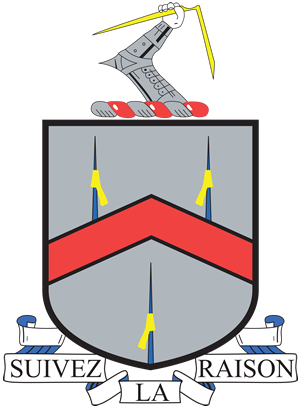Sixth Form is not about socialising, though this is no doubt a significant aspect of life at Ermysted’s. Our students are here to gain the best possible grades, equipping them well for their chosen careers.
Support
A-levels are demanding. Students are well taught at Ermysted’s, but this will never compensate for a deficit of old-fashioned hard work. When students do struggle, subject staff will help, often offering extra classes at lunch times or after school. Sixth Form pastoral staff are readily accessible to students and oversee their study habits, providing guidance as required; they meet regularly with subject staff each term to discuss boys who require extra help. Those whose effort is deemed to be too low or who have not managed to achieve their target grades will meet with the Head of Sixth Form to see what can be done to turn things around.
Thrice yearly, parents receive a report commenting on academic progress, effort, attendance and punctuality. This is in addition to an annual parents’ evening (there’s an additional evening for parents of new boys who can meet pastoral staff informally in the Sixth Form Building, usually in late September).
The best support is often your peers. We have a formal mentoring programme, though informal mentoring probably takes place every day. At Ermysted’s, we help one another.
You will find contact details for our Sixth Form Team below.
| Mr G Barrett | Head of Sixth Form & HoY 12 | gbarrett@ermysteds.uk |
| Mr T Hodgson | Head of Year 13 | thodgson@ermysteds.uk |
| Mrs J Lindsley | Assistant Head of Sixth Form | jlindsley@ermysteds.uk |
School Council
Giving a voice to students is vital to the Ermysted’s ethos. Every year, elections are held in which boys from each form across all year groups campaign to be their year’s School Council Representative. The successful candidates then take their place on the School Council. Given an annual budget, they decide how the money should be spent, be it on extra resources, facilities or something completely new for the school. The School Council members take an active role in representing the interests of their year, and meetings throughout the term allow the team to assign money to the various ideas. In the past, the School Council have bought newly designed Sixth Form ties and new furniture, and every year new ideas are brought to the table by the students. It is chaired by the Head Boy and his deputies.
Work Areas
Sixth Formers have multiple spaces they can use to work and study. Not only does our Sixth Form Library provide a resource-rich, focused environment for learning, but as of 2016 a new Sixth Form Building has also been available for students. The building offers new opportunities to Year 12 and 13 Pupils including informal, quiet and silent workrooms for independent study and a meeting room in which various societies can gather. The building is exclusive to Sixth Form students and provides a mature, quiet and controlled environment for both group work and independent study. It is also where Sixth Form staff are based and meet with students to provide support.
Prefecture
In Sixth Form, students will have the opportunity to apply for prefectship. Those who become prefects have been selected because of their history of academic application and school spirit at Ermysted’s or their previous school; they are students who go above and beyond their academic life. Whether it be helping out at our numerous open evenings or making sure the corridors are quiet at break time, they play a key role in the school and are valued for their efforts. The roles of a prefect may not always be glamorous, but many duties can be incredibly rewarding, such as shadowing a form in the lower years, giving talks and offering advice to younger boys.
All in all, our prefect system allows our Sixth Form students to take on a meaningful role in the school community and contribute to a harmonious environment. The application requires support from staff, good attendance and punctuality records and smart appearance. Evidence of leadership qualities is also sought, as well as a worthwhile CV and a covering letter.
Our senior prefect team are boys who are appointed prefects and score well in staff and pupil ballots. They are expected to give presentations to staff and undergo a gruelling interview process. The previous year’s incumbents are part of this panel.
The House System
There are four houses:
- Toller (blue), named after Peter Toller, the original fifteenth-century founder of the school sometime before 1492.
- Hartley (red), named after Edward Hartley, the dynamic nineteenth-century Headmaster who transferred the school to its present site in 1876.
- Petyt (green), named after William Petyt, one of the school’s seventeenth-century benefactors (he gave the school a valuable collection of books called the Petyt Library.)
- Ermysted (yellow), named after William Ermysted, who re-founded the school after Edward VI closed it, in 1548.
Two senior boys from each House are appointed House Captains each year, and are expected to supervise House activities. Teaching staff are attached to Houses.
You will join one of the Houses. House activities are extensive: Rugby, Cricket, Athletics and Field Sports, Drama, Cooking competitions, Music and Quizzes. Sixth formers run many of these activities.
